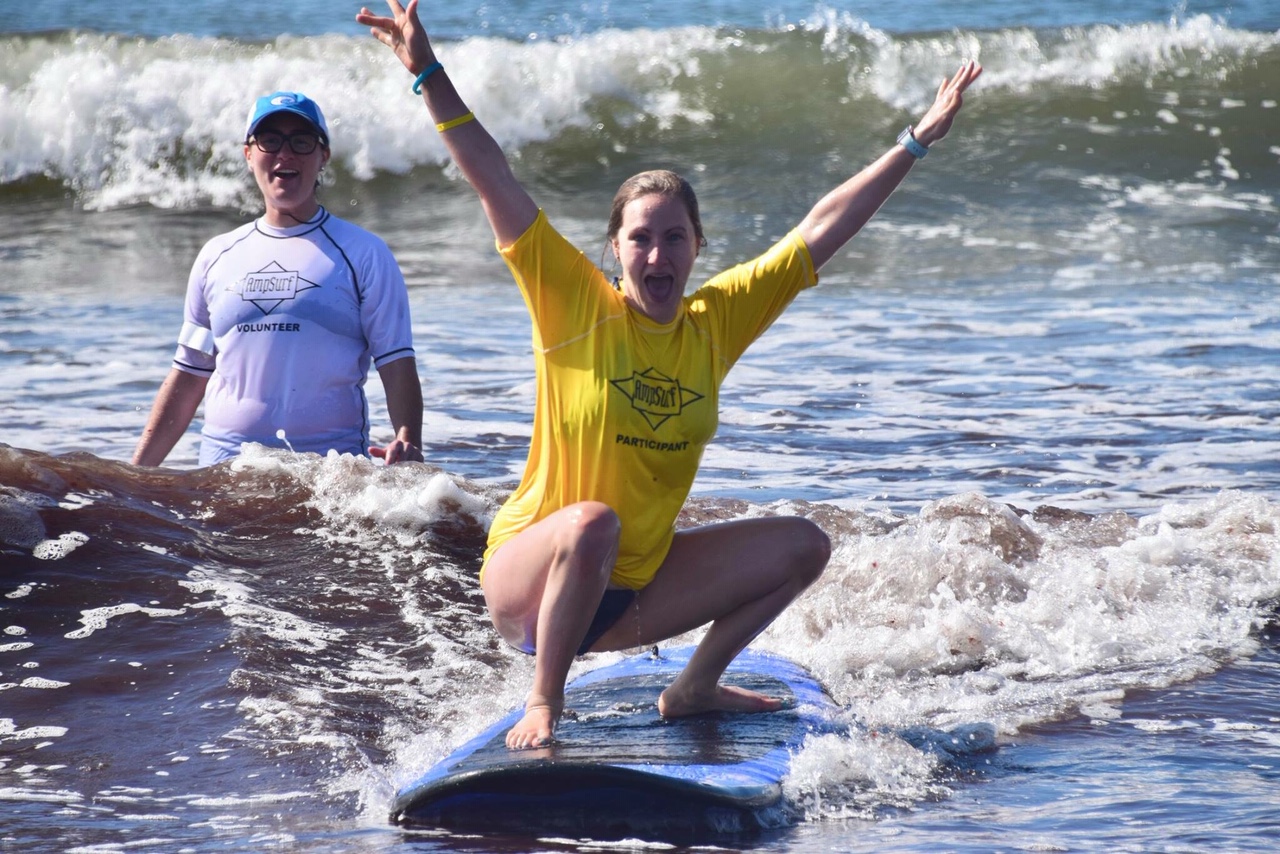Adaptively Abled
Getting paralyzed by a piano falling on top of you the day before your 25th birthday definitely requires daily humor. After sustaining an L1 burst fracture and undergoing eight hours of surgery, Spaulding was where I began the arduous task of relearning to crawl, stand, and ultimately walk. My inpatient therapists quickly identified how vital adaptive sports would be to someone like me who used to be an athlete. The first time I biked around the pier outside the hospital, I began crying for it was the first moment I felt like “me” again. Another round of tears came when I discovered the freedom and tranquility of aquatic therapy. Little did I know that aquatic therapy would lead to my new passion of competitive swimming in both the U.S. Masters Swimming and U.S. Paralympic Swimming circuits!
After spending a month as an inpatient at Spaulding, I began the process of reclaiming my independence for ADLs, driving, and returning to work as a Clinical Specialist for a medical device company. Returning to work was definitely the hardest because not only did I have to figure out how to navigate doctor’s offices and operating rooms on crutches or a wheelchair, but I had to fight the fear that my customers and co-workers would think I was less qualified for the job simply because I had a very visible disability. Between having very supportive coworkers and gaining confidence from adaptive sports in proudly identifying as an adaptively abled athlete, my disability at work quickly began to disappear. My customers, patients, and teammates almost all saw me for my intelligence and compassion, not for the fact that I have leg braces and use a wheelchair.
Adaptive sports groups have helped me build my confidence, find new passions for life, make amazing friendships, and given me an outlet for therapy that is more than just repetitive movements. The community that exists in and the experiences I have had with adaptive sports has been vital in being able to accept my paralysis and building my new identity as an adaptively abled athlete.
I had the privilege to check off a life bucket list item in March this past year when I gave a TEDx talk entitled “Why You Should Include the Adaptively Abled”. It was an amazing experience to share some of the lessons I have learned along this crazy journey the past 3.5 years and to challenge people to see those of us with disabilities for the strength and perseverance it takes to live the adaptively abled lives that we do. Feel free to check it out and share!
I’m very excited to begin working as a Peer Mentor and to help those who are more newly injured identify what makes them want to fight each day to get better and to expand the network of sharing those small tips and tricks of how to do things such as transferring to a barstool from a wheelchair!

